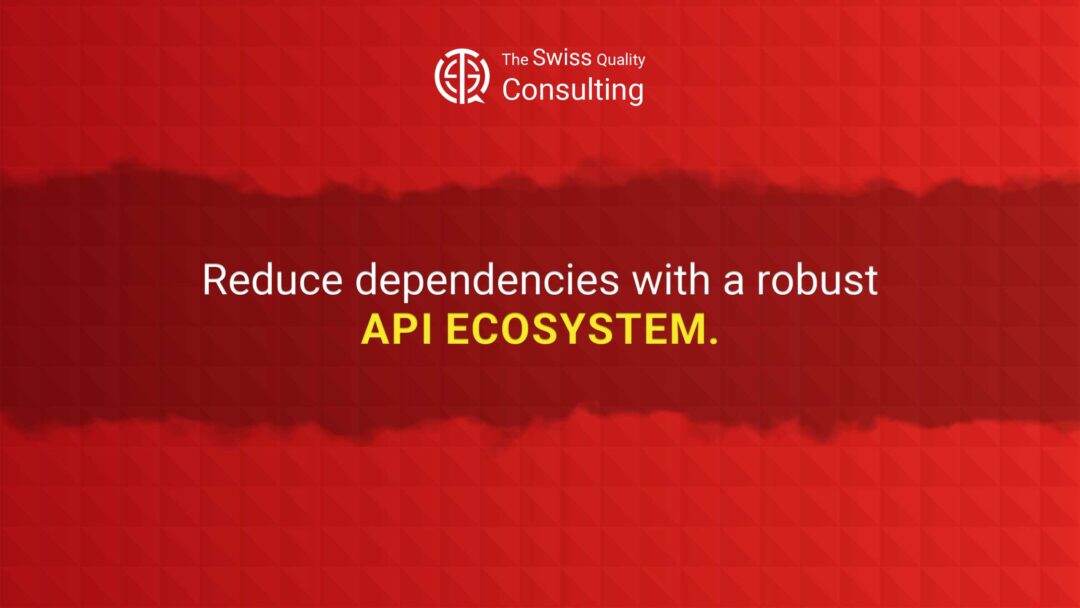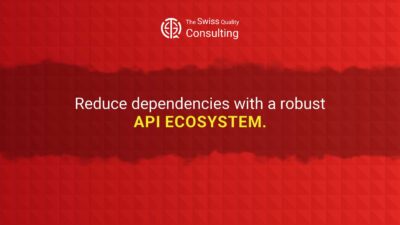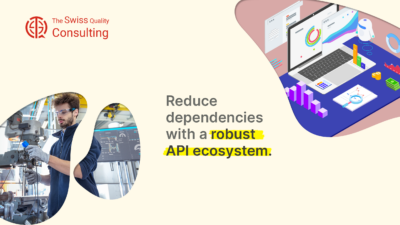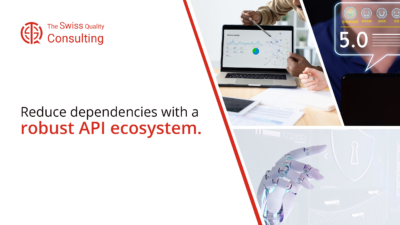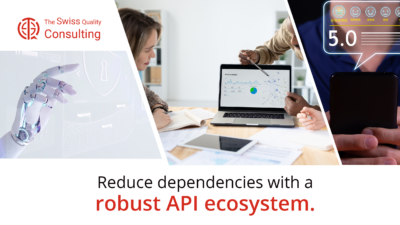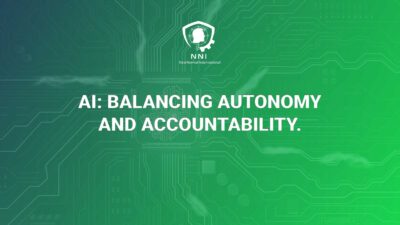Empowering Businesses through a Strong API Ecosystem: Reducing Dependencies with a Robust API Ecosystem for Enhanced Operational Flexibility
Introduction
In the digital age, reducing dependencies with a robust API ecosystem is becoming increasingly crucial for businesses aiming to maintain autonomy and agility. This article aims to provide business executives, mid-level managers, and entrepreneurs with an understanding of how a well-structured API ecosystem can reduce dependencies and foster business success.
The Strategic Importance of a Robust API Ecosystem
In today’s interconnected digital landscape, Application Programming Interfaces (APIs) have emerged as the cornerstone of seamless data exchange and collaboration between software systems. These versatile intermediaries act as the glue that binds diverse applications, enabling them to communicate, exchange data, and perform orchestrated tasks in a unified manner. By leveraging APIs, businesses can overcome the limitations of siloed data and fragmented systems, unlocking new possibilities for innovation, agility, and operational efficiency.
APIs serve as the foundation of a robust digital ecosystem, empowering businesses to connect internal systems, integrate with external partners, and tap into a vast array of third-party services. This open architecture eliminates the constraints of traditional monolithic systems, allowing businesses to seamlessly integrate new technologies, adapt to evolving market needs, and build dynamic, interconnected applications.
A well-designed API ecosystem provides businesses with a multitude of benefits, including:
Enhanced Agility and Innovation: APIs enable rapid development and deployment of new applications and features, accelerating innovation and time-to-market for new products and services.
Reduced Dependency on Single Platforms: APIs promote vendor-agnostic development, reducing reliance on specific platforms or technologies and fostering a more open and flexible IT environment.
Improved Operational Efficiency: APIs streamline data exchange and automate workflows, reducing manual processes, minimizing errors, and enhancing overall operational efficiency.
Expanded Reach and Customer Engagement: APIs empower businesses to integrate with external partners, reach new customer segments, and create seamless user experiences across multiple platforms.
Data-Driven Decision-Making: APIs facilitate the exchange of data between systems, enabling businesses to gather real-time insights, make data-driven decisions, and optimize resource allocation.
Ecosystem Collaboration and Monetization: APIs enable businesses to participate in collaborative ecosystems, share data and services, and explore new revenue streams through innovative API monetization models.
In essence, APIs have revolutionized the way businesses approach software development and integration, fostering a more agile, interconnected, and data-driven digital landscape. By embracing a robust API ecosystem, businesses can unlock new possibilities for innovation, collaboration, and growth, positioning themselves for success in today’s rapidly evolving digital era.
Facilitating Seamless Integration and Flexibility
A strong API ecosystem provides the flexibility to integrate with a wide range of services and platforms, allowing businesses to adapt quickly to changing market demands and technological advancements.
Role in Change Management
Incorporating a robust API ecosystem is a key aspect of change management. As businesses evolve, the need to quickly adapt to new technologies and processes becomes crucial. An API-centric approach allows for easier modification and enhancement of existing systems.
Adapting to Technological Changes with Ease
With a robust API ecosystem, businesses can manage changes more efficiently, ensuring that they can quickly respond to new opportunities and challenges.
Impact on Executive Coaching and Leadership
Leadership plays a vital role in the successful implementation of API ecosystems. Executive coaching services now focus on training leaders to understand the value of APIs in reducing dependencies and driving innovation.
Leading with Technological Foresight
Through executive coaching, leaders learn the importance of investing in a robust API ecosystem and how it can significantly impact the agility and resilience of their business.
Effective Communication in API Integration
Effective communication is crucial in implementing API strategies. Clearly articulating the benefits and capabilities of the API ecosystem ensures that all stakeholders understand its value and potential impact.
Enhancing Team Collaboration through APIs
Communicating the strategic vision behind API integration can enhance team collaboration, ensuring that everyone is aligned and working towards a common goal of technological autonomy.
Generative AI in Optimizing API Ecosystems
Generative Artificial Intelligence (AI) is increasingly being used to optimize API ecosystems. AI can analyze system performance, user interactions, and market trends to suggest improvements and integrations for the API ecosystem.
Leveraging AI for Advanced API Solutions
Generative AI offers innovative solutions for enhancing API ecosystems, making them more efficient, scalable, and aligned with business objectives.
Conclusion
In conclusion, reducing dependencies with a robust API ecosystem is a strategic approach for businesses looking to enhance their operational autonomy and agility. By investing in a strong API infrastructure and leveraging advanced technologies like AI, businesses can stay adaptable and competitive in the rapidly evolving digital landscape.
#APIEcosystem, #BusinessAutonomy, #DigitalTransformation, #AIinBusiness, #TechInnovation

